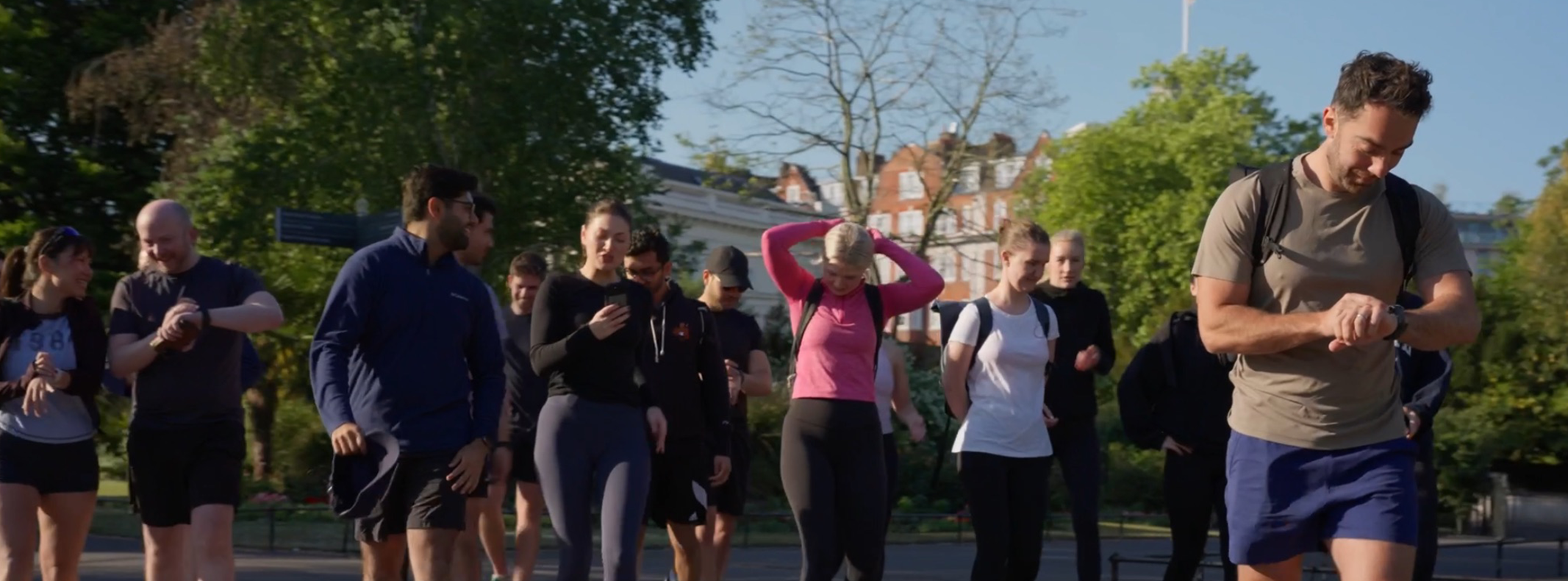‘Execution is everything.’ Key lessons in growth from Lodgify’s former CEO
This month, as we shine a light on some of some of the companies we support to uncover the learnings from their growth journeys, we turn to Lodgify.
Lodgify has been disrupting the long-tail vacation rental market since 2012. Starting life as a holiday rentals marketplace, the founding team made a pivot, away from connecting hosts with customers and towards empowering hosts to take ownership – and grow their own businesses.
Lodgify’s category-leading SaaS solution is aimed squarely at the small and medium-sized enterprise (SME) market, focusing on the long tail of owners in the vacation rental market. From narrowboat holiday hosts in the English countryside, to island paradises, managed from thousands of miles away, Lodgify’s customer-centric solution is equipping a generation of holiday and short-term rental hosts with the tools they need to manage their business. With website building, property management software, payment processing and far more on offer, Lodgify is a one-stop shop for hosts.
We caught up with Lodgify’s co-founder and former CEO, Dennis Klett, to discover more about the company’s scale-up journey, as well as Dennis’s own lessons in leadership. He covered everything from what he looks for in a venture fund to key tips for succession planning. Read on to find out more.
Which one key learning do you wish you’d known before you started out on your founder journey?
Do you know the HBO show, Silicon Valley? The first learning is that it’s exactly what the show is depicting! That was a learning – that it’s a real rollercoaster, especially at the beginning. You have no resources so the main issue you have is that you’re alone, with your co-founder, and you just need to somehow get it done. Over time, that changes.
Once you start scaling you have completely different challenges: it’s not the lack of resources anymore. You have financial resources; you have human resources. But the problems become more complex.
Whenever I hear founders talking about their journey, they always emphasise how important people are, and I agree. In retrospect, it is the most important thing. But it’s always easier said than done. You always want to have a top-talent team, but it’s never that easy.
So, one learning is to do it in steps. You don’t have enough financial resources? Well, you might not be able to afford a top executive team, with 100% A-players, but maybe you can fill one key position with a rockstar. And for that one position, you need to go beyond your typical ways of thinking around salaries and package. Same for the rest of the team.
I learned to always incrementally add better talent. Of course, you want to get the top – but can’t afford it initially, so you must think in terms of steps. ‘What is my next step in levelling up the talent game?’
Lodgify’s growth from £5m – £30m ARR was significantly faster than its growth from zero to £5m ARR. Do you have any reflections on that?
Initially, we made nearly all the mistakes you can, in terms of starting a company! For example, I think we worked for more than a year on our product without showing it to anyone…
In retrospect that was wrong, but at the time, we were young and naive. Plus, when we started, we didn’t start as a venture capital story. We were starting it as a lifestyle business.
We had family involved in vacation rentals, or short-term rentals; it was before Airbnb. We weren’t impressed by what marketplaces were on offer, so we naively said, “hey, we can do this better”. And we did! But it never really scaled because it’s much harder to create a company in the B2C marketplace than we thought.
Then we created a software feature, and that’s the only thing that actually generated some money. It gave us the indication that we were onto something with software, rather than marketplace.
As we saw what was happening with the likes of Shopify, a pioneer in the SME B2B SaaS space, plus the growing size of the vacation rental market, we realised that Lodgify’s software was a venture capital play. It was clear we couldn’t survive as a lifestyle business: we had to pivot away from our previously cautious approach and raise capital.
This was all pre-2020. Other start-ups in our space were growing like crazy but also burning cash like crazy. Our approach was a little different. For us, in the early days, it wasn’t about being a rocket ship, but building a real business with real foundations, at a certain efficiency level.
Focusing on good business fundamentals, being customer-centric and taking our time to build a business that fundamentally works, meant that we built a company that scales and compounds nicely. As a result, we went from £5 million to £30 million ARR in a much shorter time.
What would your advice be to a founder of a start-up with a lot of hype around it, approaching a competitive funding round? What should they be looking for in their investor?
I have a very simplistic view there. I think the main thing is to make sure you get along with the investor. Make sure that the key person that you’re talking to on behalf of the firm is someone you know you can trust.
Of course, initially it’s a gamble, because you have limited time in making this assessment. But you need to make those judgement calls, you need to get this gut feeling. You need to have the feeling that the person on your investment team is someone you can trust, even though it’s still early. We found that in Octopus Ventures, as well as the people who backed us earlier in our journey.
Everything else matters too – network, reputation, expertise in your domain. The more of the latter, the better. Back when we started, enterprise SaaS was the thing and there weren’t as many VCs that understood vertical SME SaaS.
With Octopus Ventures it was very easy. They understood, and had expertise in, SME SaaS. More importantly, right from the initial conversation, they actually understood what we were doing, the dynamics, and they interpreted it properly. They saw the challenges, but they saw the opportunities, the upside on being SME focussed. This was a key differentiator for us in choosing to partner with them.
Succession can be a knotty question. We published a blog about the taboo surrounding it, and why it needs to be addressed, last year. It’s a disruptive process, more so when the CEO is a co-founder. What was your decision-making process around it like, and how did you plan for it?
In my case, the trigger was purely personal. I needed a break after, you know, 12 years. In terms of the timing, when I communicated it, I had a good feeling around where the company was. It was a moment where I realised, I’m not that critical anymore.
I also wanted to make sure that there was enough time to hire the right person; even though I never did it before, I knew it was going to take a lot of time, because we really needed to be sure.
That was my thinking process, but in retrospect maybe the company was in a phase where in any case it would have been good to think about a potential change, or change in responsibilities.
I think that’s what founders should always think about, not just in terms of being the CEO or not but also consider their journey. There are responsibilities I should have let go of earlier: product, or finance. As with any other operation role that you do as a founder, it always makes sense to reflect and ask if now is the time to delegate.
Each stage of the company is just so different. You may not always be the right person leading at that specific stage. And it’s a good question to ask.
Octopus Ventures helped a lot with that and with finding my succession when I stepped down as CEO. That’s the key hire, to hire the CEO, and it was a very scary thing for me to do. But with the help of Octopus Ventures, and the People + Talent team, it became very smooth.
Again, there’s a process. I did it for the first time, but it’s incredibly helpful to know that you have people involved who’ve done it multiple times. Octopus Ventures played a key role, running the assessment process, mandating, steering the head-hunter and helping close the chosen candidate – that was very, very value adding.
Finally, what’s the one piece of advice you wish you’d been told, as you were setting off on this journey?
We’ve spoken about the challenges that come with scaling, and how different they are, and how much time you spend thinking about these problems, how to manage and solve them. But you should never forget the customer. You’re busy, hiring, fundraising, having strategy conversations, business management, OKRs, etc., etc.
There’s a lot of time spent on this bureaucracy. But in the end what matters the most is the customer. You need to be obsessed with them. You need to remind everyone in the organisation to not forget about the customer.
As complexity increases in the organisation, keep an eye on the basics. There’s this meme, where you have a normal distribution curve, and on the X axis on the left you have beginner. And they say, “let’s just make something people want.” Then you have the mainstream who are like, no, we need five-year plans, we need tribe meetings, focus groups, etc. Finally, on the advanced end, you have the expert who says “no, we just need to make something people want.”
I went through this learning curve. I started as this naive founder, wanting to make something I would want to use. Then throughout the scaling process, I over complicated all these things. Then I pulled the organisation back to the original thought. It made sense to just do something people want.
The second thing to mention is execution. As you scale you deal with all these things, but what matters isn’t what you discuss or put on slide decks – it’s what you do. And, as you scale, execution becomes more difficult.
There’s a saying: ‘It’s better to have excellent execution with a mediocre strategy than an excellent strategy with mediocre execution’. Don’t overthink the strategy, don’t overthink your beautiful plan. Just do it.
This kind of back-to-basics recommendation can get forgotten as you scale, because of all the issues that we discussed. So just don’t forget the customer, obsess around the customer and execute. Do it.
Our thanks to Dennis. To learn more about the support we offer the companies we back, or to tell us about your vertical software company, head to our website. You can start a conversation here.













